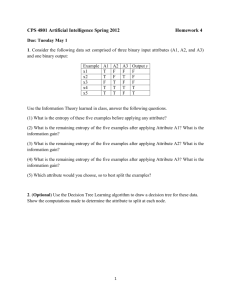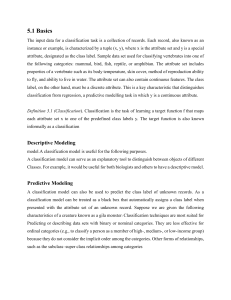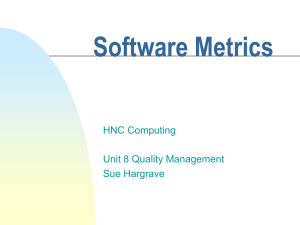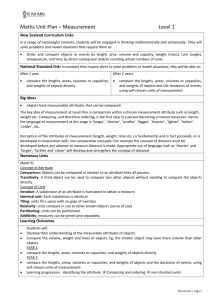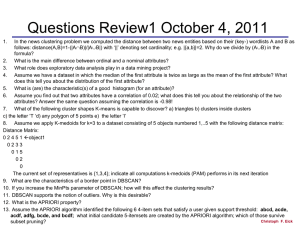The influence of rankings on attribute weights in multi
advertisement
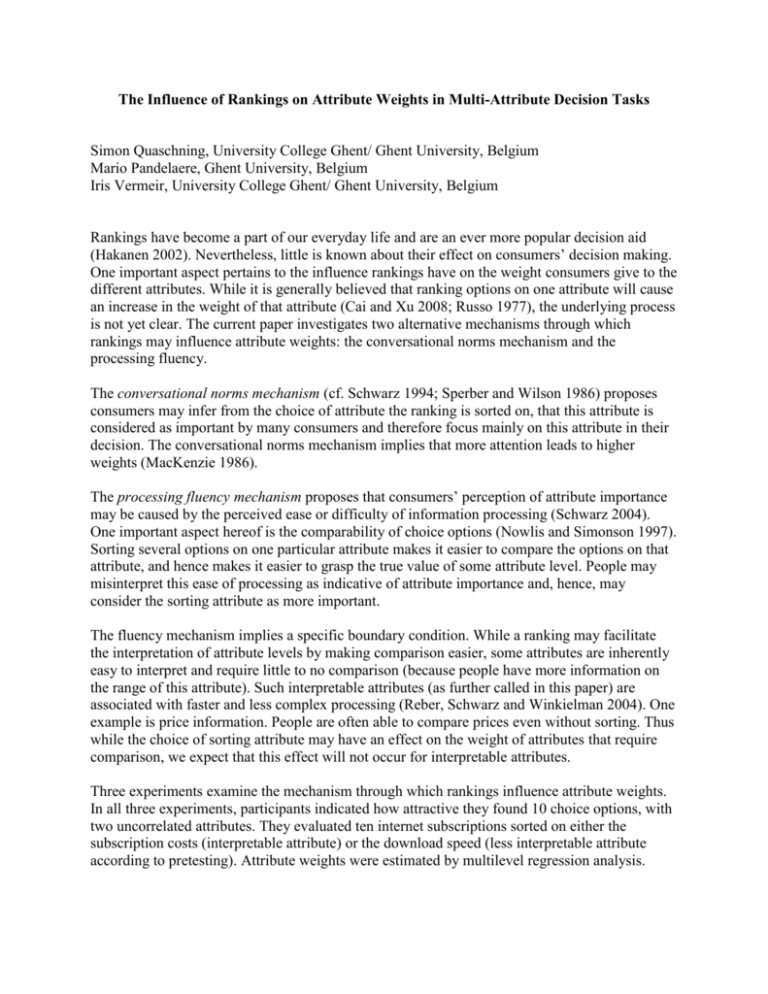
The Influence of Rankings on Attribute Weights in Multi-Attribute Decision Tasks Simon Quaschning, University College Ghent/ Ghent University, Belgium Mario Pandelaere, Ghent University, Belgium Iris Vermeir, University College Ghent/ Ghent University, Belgium Rankings have become a part of our everyday life and are an ever more popular decision aid (Hakanen 2002). Nevertheless, little is known about their effect on consumers’ decision making. One important aspect pertains to the influence rankings have on the weight consumers give to the different attributes. While it is generally believed that ranking options on one attribute will cause an increase in the weight of that attribute (Cai and Xu 2008; Russo 1977), the underlying process is not yet clear. The current paper investigates two alternative mechanisms through which rankings may influence attribute weights: the conversational norms mechanism and the processing fluency. The conversational norms mechanism (cf. Schwarz 1994; Sperber and Wilson 1986) proposes consumers may infer from the choice of attribute the ranking is sorted on, that this attribute is considered as important by many consumers and therefore focus mainly on this attribute in their decision. The conversational norms mechanism implies that more attention leads to higher weights (MacKenzie 1986). The processing fluency mechanism proposes that consumers’ perception of attribute importance may be caused by the perceived ease or difficulty of information processing (Schwarz 2004). One important aspect hereof is the comparability of choice options (Nowlis and Simonson 1997). Sorting several options on one particular attribute makes it easier to compare the options on that attribute, and hence makes it easier to grasp the true value of some attribute level. People may misinterpret this ease of processing as indicative of attribute importance and, hence, may consider the sorting attribute as more important. The fluency mechanism implies a specific boundary condition. While a ranking may facilitate the interpretation of attribute levels by making comparison easier, some attributes are inherently easy to interpret and require little to no comparison (because people have more information on the range of this attribute). Such interpretable attributes (as further called in this paper) are associated with faster and less complex processing (Reber, Schwarz and Winkielman 2004). One example is price information. People are often able to compare prices even without sorting. Thus while the choice of sorting attribute may have an effect on the weight of attributes that require comparison, we expect that this effect will not occur for interpretable attributes. Three experiments examine the mechanism through which rankings influence attribute weights. In all three experiments, participants indicated how attractive they found 10 choice options, with two uncorrelated attributes. They evaluated ten internet subscriptions sorted on either the subscription costs (interpretable attribute) or the download speed (less interpretable attribute according to pretesting). Attribute weights were estimated by multilevel regression analysis. Study 1 demonstrated the main effect of the choice of sorting attribute on attribute weights. The results revealed that the choice of sorting attribute partly had an effect on the attribute weights in consumers’ product evaluation. The weight of the less interpretable attribute was higher when options were sorted on this attribute. The weight of the interpretable attribute, in contrast, was unaffected by the choice of sorting attribute. In the second experiment we investigated the role of attention in the relationship between sorting and attribute weights. This study also helped us to pit the two proposed mechanisms against one another. While the conversational norms mechanism implies an increase of attention toward an attribute when chosen as sorting attribute, attention toward the sorting attribute will decrease when the fluency explanation holds. After all, ranking enables consumers to process this attribute faster as it makes option comparison for the attribute easier (Viswanathan and Narayanan 1994). We repeated the first study in an eye-tracking setting. The results replicate those of the first study, since only the weight of the less interpretable attribute was affected by the choice of sorting attribute. Interestingly, the eye-movement data indicated that attention towards the less interpretable attribute decreased when the ranking was sorted on this attribute, while attention towards the interpretable attribute was always low, independent of the sorting (figure 1). These findings rule out the conversational norms mechanism. A mediation analysis could not confirm that the decrease in attention explains the effect of sorting on attribute weights. Instead, the results showed a suppression effect. While we found a positive attention-importance relationship, another, larger, factor is associated with an increase in attribute weights for the sorting attribute. A probability analysis revealed that consumers engage in more comparisons among the less interpretable attribute when it was chosen as sorting variable, despite paying less attention to the attribute overall. Consequently, we propose the ease of comparison as an explaining variable. This will be tested in the last experiment. Fig. 1. Effect of sorting on attribute weights and gaze duration (study 2) In study 3 we used a cognitive load manipulation. According to Winkielman et al. (2003), the fluency effect should increase under cognitive resource limitations, since the integration of additional product information is hindered. This would also provide evidence for the ease of comparison proposition. A high cognitive load impedes the comparison of non-sorted attributes, even for interpretable attributes. Only the sorting attribute will lend itself to comparisons. In a 2x2 design, participants were given the task of the previous studies, but now they had to additionally remember a 7-digit number or a 2-digit number (respectively the high and low cognitive load manipulation, Shiv and Fedorikhin 1999). While the results under the low cognitive load manipulation replicate those of the first two studies, the sorting effect is accentuated when the cognitive load is high (figure 2). Confirming our expectations, both the more and less interpretable attributes are positively influenced by the choice of sorting attribute under low processing resources. Fig. 2. Effect of sorting on attribute weights under low and high cognitive load (study 3) The present research sheds light on a very under-researched, yet interesting topic. Rankings play an important role in various multi-attribute choice situations. Nevertheless, their impact on the importance of involved attributes is not yet clear. The results of this paper confirm the proposed effect of rankings on attribute weights and deliver a conclusive explanation. The current research shows that the decision how to present options in a ranking may not be without consequences. For further information contact: simon.quaschning@hogent.be
